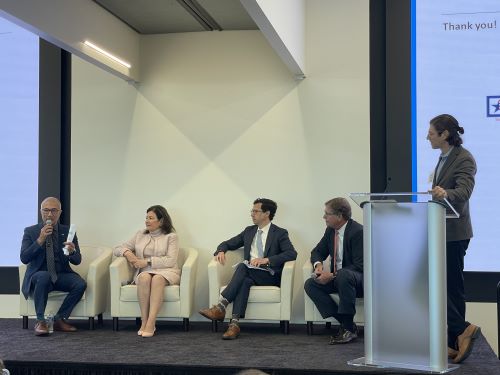Denying Green Cards to Legal Immigrants Won’t Fix the Welfare System — It Will Cost Taxpayers More
 The Trump administration will soon place new limits on legal immigration with a regulatory change that will penalize newcomers just because they could use public benefits in the U.S. The point, according to a spokesman for the president, is “to ensure that the government takes the responsibility of being good stewards of taxpayer funds.”
The Trump administration will soon place new limits on legal immigration with a regulatory change that will penalize newcomers just because they could use public benefits in the U.S. The point, according to a spokesman for the president, is “to ensure that the government takes the responsibility of being good stewards of taxpayer funds.”
In the long run, however, the proposed rule will amount to the opposite of good stewardship: It will cost the government, and taxpayers, much more than it will save.
The Department of Homeland Security and the State Department already consider whether immigrants are likely to become “a public charge” before issuing visas to them, or granting them permanent resident status (green cards). The administration’s modified rule would codify that process, setting new, stricter standards.
Leaked drafts of the regulation show that immigrants could be at risk if the government thinks they might consume, over a year, as little as $1 a day (for primary immigrants), or 50 cents a day (for each person in a family of four), in public benefits. Even the welfare consumption of an immigrant’s citizen children — their use of food stamps, say, or Medicaid — would count in the calculation.
Under the new rule, many lawful migrants already in the U.S. would no longer qualify for green cards. It could put their livelihoods at risk, turn some of them into illegal immigrants or force them to leave the country. Their wages and their families’ fortunes would drop, but their U.S.-born citizen children would still have access to welfare. Those children would become a bigger burden to U.S. taxpayers.
The new rule would also tend to target younger immigrants because they generally have lower incomes than their older counterparts. However, a recent National Academy of Sciences report found that younger immigrants in particular pay more into the system than they take out over the course of their lives. They are also likely to have children in the future and, as the report said, although second-generation immigrants as children “absorb slightly more [public] benefits,” they also contribute “considerably more in taxes during working ages” than other immigrants and American citizens.
In the draft of the rule, the Trump administration explicitly rejects crafting a regulation based on its long-term fiscal impact because, according to the administration, “there is a lack of academic literature or economic research examining the link between immigration and public benefits.” On the contrary: There is a vast archive of peer-reviewed studies that analyze the costs and benefits of immigrants to taxpayers. Like the National Academy of Sciences report, most of this research shows that immigrants overall pay more in taxes than they receive in benefits, or that they at least pay enough taxes to cover the benefits they consume.
For example, a report in the journal Health Affairs found that from 2002 to 2009, immigrants paid $115.2 billion more into Medicare than they took out in benefits, which has helped forestall the program’s rush toward insolvency. Similarly, Social Security data show that immigrant contributions are reducing that program’s deficits. According to the New York Times, Trump’s own Department of Health and Human Services delivered a report in 2017 that showed that refugees “brought in $63 billion more in government revenues over the past decade than they cost.” The White House promptly buried the study.
Based on the results in the National Academy of Sciences report and the terms of the new rule in the leaked draft, I calculated my own cost-benefit analysis of the Trump administration’s regulation: It will cost $1.46 for every dollar it saves.
To justify the new policy, the administration not only ignores the research, it rigs the regulation to make sure it produces a negative result for immigrants. For instance, under the new rule, the welfare an immigrant’s U.S. citizen children consume as dependents counts in considering his or her status, but not the taxes they pay once they are no longer dependents.
I applaud the administration’s stated goal — protecting taxpayer money. And I agree with its implied goal — a reduction in immigrant welfare use. But denying green cards to immigrants is not the way to fix the welfare system. That would require cutting benefits and access across the board for noncitizens, but also for citizens who are the system’s primary beneficiaries.
Instead, the government is proposing a complicated new regulation that will block immigrants from their shot at the American Dream. It’s inhumane, and it will backfire, increasing deficits and entitlement shortfalls. That’s no one’s definition of good stewardship.








